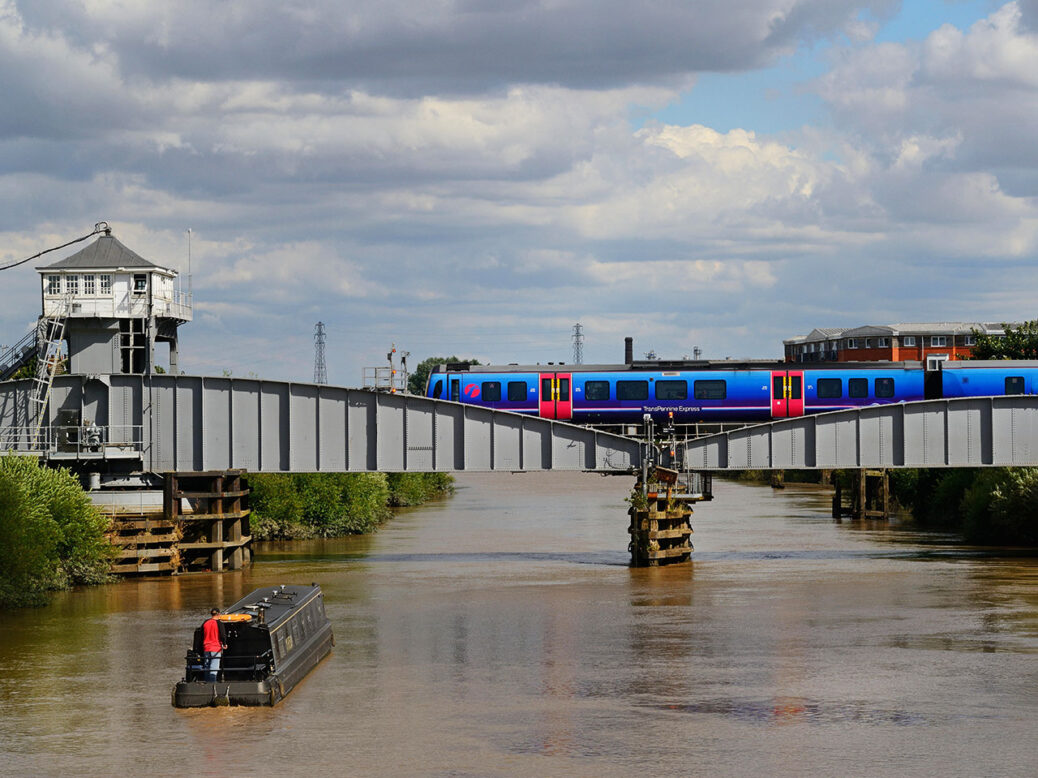
The TransPennine Express route from Leeds to Manchester via Huddersfield is one of England’s most scenic railway journeys – providing, of course, you can find a train. In recent months, alas, the operator has struggled to offer this ostensibly basic function to an upsettingly high number of passengers, and in March cancelled roughly one in six of its services. That sounds bad – is bad; it makes it Britain’s least reliable rail operator – but it was nonetheless a step up from the one in four it cancelled in the first two months of the year (although the operator, First Group, had found ways of disguising that figure unofficially).
Anyway, this week, the Department for Transport announced that it had finally had enough, and that First Group’s contract to operate the service would not be renewed when it expires later this month. After 28 May the franchise – which also provides regional trains between the cities of Yorkshire, the north west and all points north – will instead be provided by the “operator of last resort”, a telling Tory euphemism for “the state”. That makes it the fourth train operating company in England to be effectively nationalised in just under five years, one of those little ironies of modern conservatism we can probably file next to imposing the highest tax burden in 70 years while claiming to be a low tax party.
The things that went wrong at TransPennine seem to be the same things that have gone wrong elsewhere on the network, except possibly more so. The route has suffered from decades of under-investment in rail infrastructure: plans for desperately needed upgrades along this route date all the way back to the 1980s, and what investment has been made has been “descoped”, a fancy word for “doing just enough to allow politicians to prance about in high visibility jackets and hard hats, but not enough to actually fix anything”. Throw in the usual mix of bad management, bad contracts, collapsing staff morale and Covid and, well, nature took its course. (There are other more technical factors involving new trains, training backlogs and so on, but those are the key points.)
All this makes it not just another failure from a privatised rail system, in which operators are incentivised to serve shareholders, not passengers, but a failure of government, too. Whoever’s to blame, though, the net result is that if you want to quickly and reliably get between Manchester and Leeds – 40 miles, the sort of distance you can do on some of London’s more ambitious tube lines – you’re better off jumping in a car and taking the M62. Many people have.
[See also: Was Great British Railways ever the answer to the UK’s transport woes?]
A lot of the things I’ve written about Britain’s privatised rail network over the last few years could have been prefaced by that most annoying of openings, “Well actually”. Well actually, for all the talk about terrible services putting passengers off, passenger numbers rose after privatisation towards new, all-time highs. Well actually, while fares do sometimes look steep compared to those on the continent, the network uses them to manage demand, and critics are often not comparing like with like. Well actually, these apparently price-gouging companies are a whole lot less profitable than you’d think, and the big problem is the gradual removal of public subsidy.
Over the last few years, though, that cheerily panglossian attitude has become increasingly hard to maintain. It doesn’t matter how much you bang on about airline-style booking systems and demand management, £369 for a return from Manchester to London would be obscene even on an operator a lot more competent than Avanti. (This was, as Greater Manchester mayor Andy Burnham noted when highlighting that fare last year, more than long haul air fares to four different continents.)
Worse, the British rail network has very obviously started to fail. Even before the pandemic, the aforementioned lack of investment in the Manchester area meant that the north was putting up with service and cancellation levels that would have outraged the newspapers were they to happen in the south (as indeed they did, for a brief time in 2018). When Covid hit, the resulting fall in passenger numbers apparently killed off the franchise system, once and for all, turning train operators into little more than arm’s-length delivery bodies for central government.
But rather than this leading to better, more publicly-minded rail operations, we’re now seeing services cut, at the behest of a Treasury that looks at trains and sees not a vital piece of the nation’s transport infrastructure but merely an annoying cost. While the department’s short-termism continues to lurk behind all sorts of public policy failures, like a creepy masked fairground operator in Scooby Doo, I’m not convinced that nationalisation in itself will fix anything – not unless we accompany it with serious investment in infrastructure, and devolve management to the cities and regions that actually see the point of having a rail network. If the causes and solution to this mess may be complicated, though, the way it is understood and experienced by the public is not. Back in 2010, before this government came to power, you could be reasonably confident of getting a train, just as you could be fairly confident of getting a doctor’s appointment. Now, in all too many places, you cannot. The demise of TransPennine Express is just another symptom of the fact that, after thirteen years of Tory government, everything is starting to break.
[See also: What’s causing HS2’s endless downgrades and delays?]



